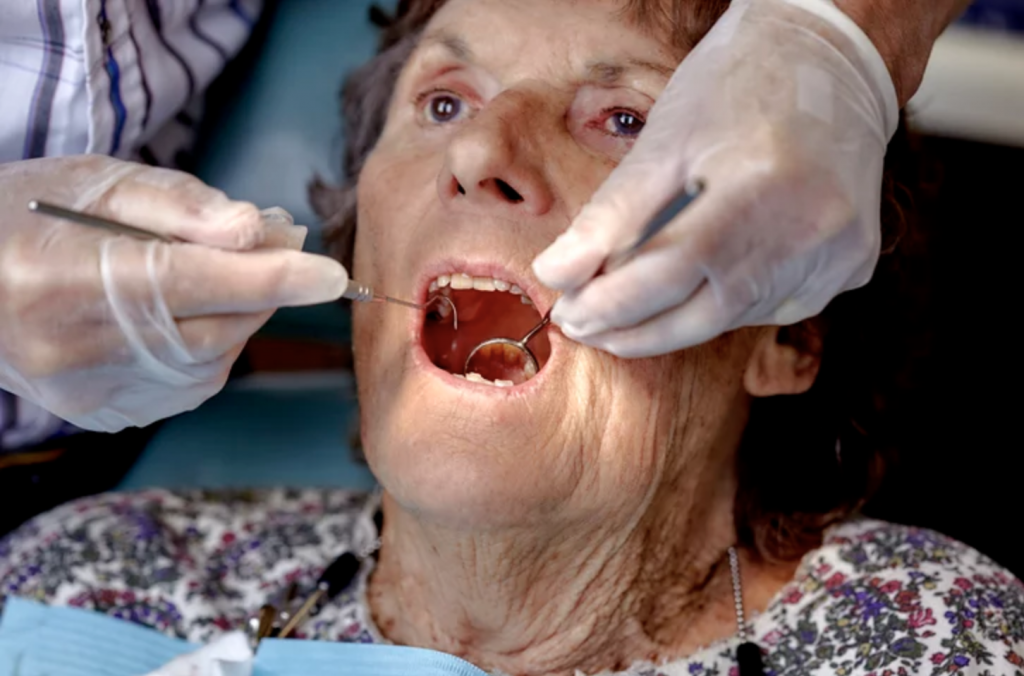 Dental hygiene is one of the most basic parts of our daily routine, but what happens when you can’t access a dental clinic, live too far away from one, or are physically unable to go? This is where mobile dental hygienists come in.
Dental hygiene is one of the most basic parts of our daily routine, but what happens when you can’t access a dental clinic, live too far away from one, or are physically unable to go? This is where mobile dental hygienists come in.
Mobile dental hygiene is where dental hygienists will visit patients in their home or place of residence with the equipment needed to provide them with proper dental care. This includes providing dental hygiene services to those in nursing homes, hospitals, and rural communities, to name a few. It’s especially great for families, as children can be looked at while other family members take care of their own tasks at home, instead of sitting for long periods of time waiting in an office.
If you’re interested in pursuing dental hygienist training, this could be a great way to find a career within the profession. You may be wondering how it works, and what tools you will you need to succeed. Here are four ways your career as a mobile dental hygienist can take off!
1. Always Be Aware of the Dental Health of Patients
Since you will be serving people who don’t regularly go to a dental clinic when you become a dental hygienist, it’s important to be aware of and keep a record of any dental issues that may arise in their mouths. It’s worth keeping this in mind if you’re providing mobile services to retirement communities, as dental health can affect you more as you age. If you see cavities or gum disease in your mobile patients, catching it as early as possible and acting on it promptly will be a great step toward success in this field.
 Learn to notice issues with oral health before they escalate in Oxford College’s Dental Hygienist Program
Learn to notice issues with oral health before they escalate in Oxford College’s Dental Hygienist Program
2. Follow Your Province’s Laws During Your Mobile Dental Hygiene Career
Although mobile dental hygiene is a more commonly used service nowadays, dental professionals still have laws to abide by with it. In Ontario, hygienists registered under the CDHO (College of Dental Hygienists of Ontario) can be certified to perform certain services without needing a dentist’s permission. However, this may not be the case in other parts of Canada, as health professionals are regulated by individual provinces. Before embarking on your dental hygienist career, double-check the laws stipulated by your province to fully understand what you’re allowed to do. You can do this by contacting the Canadian Dental Association, if necessary.
3. Prioritize Oral Health Education as Part of Your Mobile Dental Hygienist Career
While this is a basic part of a dental hygienist’s responsibilities, regardless of the environment you choose to work in, it’s especially pertinent with mobile care. Since your patients cannot physically visit a dental clinic, or lack access to one, educating them about the importance of dental hygiene, such as regular brushing and flossing, should be emphasized during your visit. Considering you have patients who may not have had many visits with a dental professional as a result of their circumstances, and who have unique issues with their oral health, it’s always important to educate!
 Oral health education is an important part of any dental hygienist’s job
Oral health education is an important part of any dental hygienist’s job
4. Let Patients Choose How They Pay for Your Services
While patients in need of mobile dental services are often those who are immobile or have limited access to clinics, these services can also appeal to those who do not have health insurance, or whose insurance is limited, as well as those who cannot make regular visits to a dental clinic work due to their financial situation. If you have patients in these circumstances, you can offer a variety of payment plans to them, as it will make your services more accessible to everyone.
Want to enroll in a dental hygienist program?
Contact Oxford College for more information!






